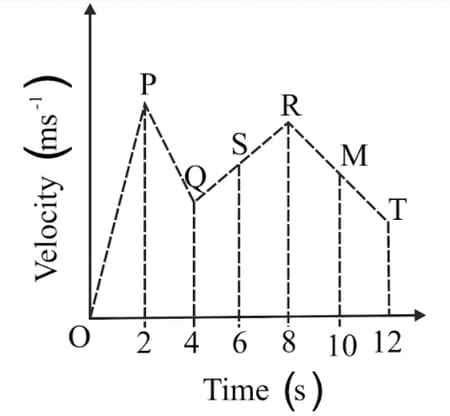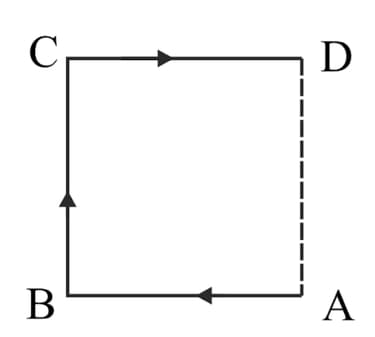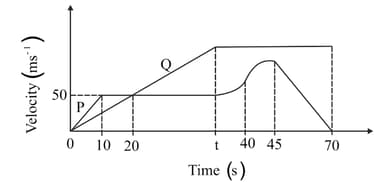Anil Ahlawat Solutions for Chapter: Motion, Exercise 1: EXERCISES
Anil Ahlawat Science Solutions for Exercise - Anil Ahlawat Solutions for Chapter: Motion, Exercise 1: EXERCISES
Attempt the practice questions on Chapter 8: Motion, Exercise 1: EXERCISES with hints and solutions to strengthen your understanding. NSO Science Olympiad Workbook Grade 9 solutions are prepared by Experienced Embibe Experts.
Questions from Anil Ahlawat Solutions for Chapter: Motion, Exercise 1: EXERCISES with Hints & Solutions
A ball is dropped on to the floor from a height of . It rebounds to a height of . If the ball is in contact with the floor for seconds, what is the average acceleration during contact?
The velocity-time graph of an object is shown in the figure. Identify the correct statement(s) regarding this graph.

i) This is a non-uniform velocity-time graph of the object.
ii) The velocity of the object is increasing at the same rate during OP and QR.
iii) The velocity of the object is decreasing at the same rate during PQ and RT.
A boy takes to reach each point from A to B, B to C and C to D as shown in the diagram. If , then which of the following is correct when the body reaches D from A through BC?

Two racing cars of masses are moving in circles of radii respectively. Their speeds are such that each makes a complete circle in the same length of time . The ratio of angular speed of the first car to the second car is :
The speed of a train increases at a constant rate from zero to , and then remains constant for an interval, and finally decreases to zero at a constant rate . If be the total distance travelled, then the total time taken is :
A train starts from a station with a uniform acceleration for some distance and then goes with uniform retardation for some more distance to come to rest at the station . The distance between the stations is and the train takes to complete this journey. Then is :
The diagram shows the velocity-time graph of two moving cars . The graph indicates that

i) The velocity of car is increasing at a decreasing rate from in the same direction.
ii) Car is moving with a constant acceleration from .
iii) Acceleration of the car is not zero at any point during the whole journey.
iv) After , is behind .
Which of the following is correct?
After jumping out from the plane, a parachutist falls without friction. When he opens up the parachute, he decelerates at . He reaches the ground with a speed of How long did the parachutist spend in the air? Take .
